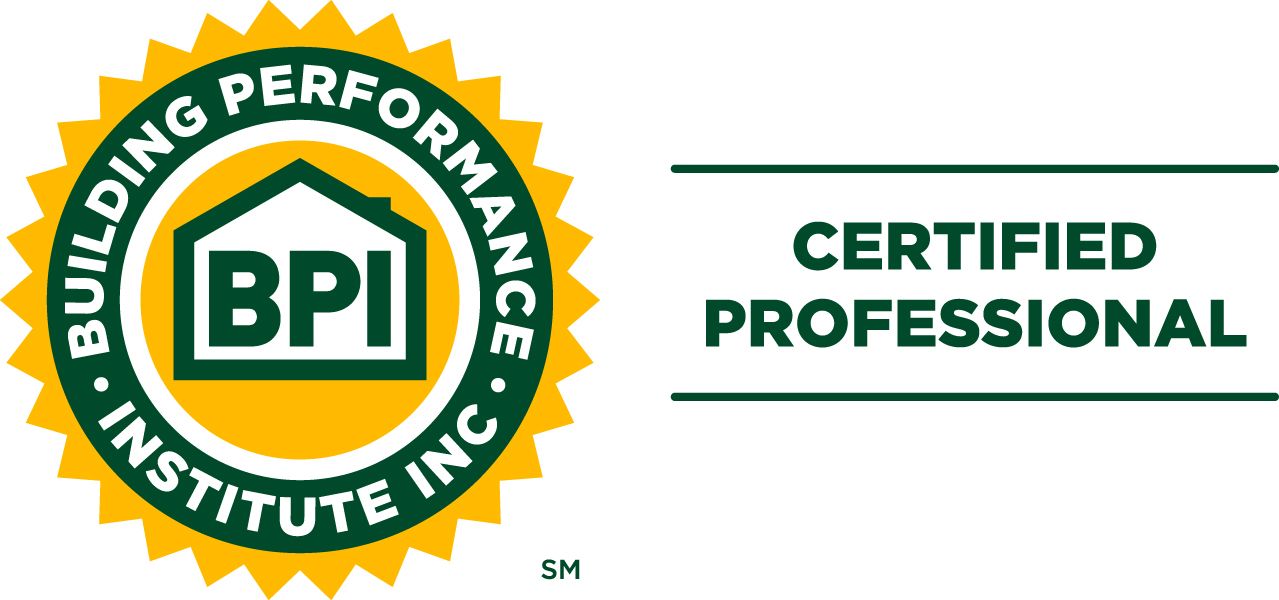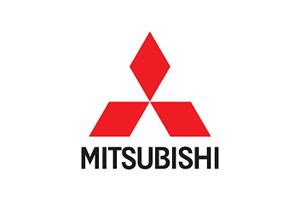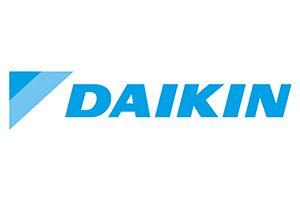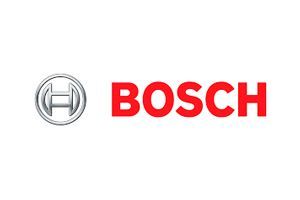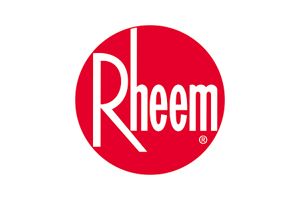Recent Blog Posts
Expert HVAC Services
Contra Costa County
FREE Estimates Within 48 Hours
5% Senior and Veteran Discount
Emergency HVAC Services
Request Call Back
Hero Request Form
Thank you for contacting us.
We will get back to you as soon as possible.
Please try again later.
Reliable HVAC Solutions for Every Season
Tyndall HVAC, Inc has been keeping Contra Costa County comfortable since 2006. With over 40 years of experience, our veteran-owned and family-operated business is dedicated to providing exceptional heating and air conditioning services. We understand that a well-functioning HVAC system is crucial for your comfort and well-being, which is why we offer a comprehensive range of services to meet all your heating and cooling needs.
Our team of NATE-certified technicians is committed to delivering high-quality workmanship and outstanding customer service. We take pride in our ability to offer competitively priced solutions without compromising on quality. As a locally owned business, we're deeply invested in our community and strive to build long-lasting relationships. Whether you need a simple repair or a complete system overhaul, we're here to ensure your home or business stays comfortable year-round. Contact us today!
Why Choose Tyndall HVAC, Inc?
Tyndall HVAC Inc has been serving homes since 2006, built on the values our family stands by. We treat your home with care, focusing on what matters most—quality repairs and installations. There’s no sales pressure or upselling, just honest work done right, backed by our satisfaction guarantee. Learn more on our About Us page.
FREE Estimates Within 48 Hours
5% Senior and Veteran Discount
Emergency HVAC Services
3-Year Labor Warranty
Price Matching Available
Competitively Priced
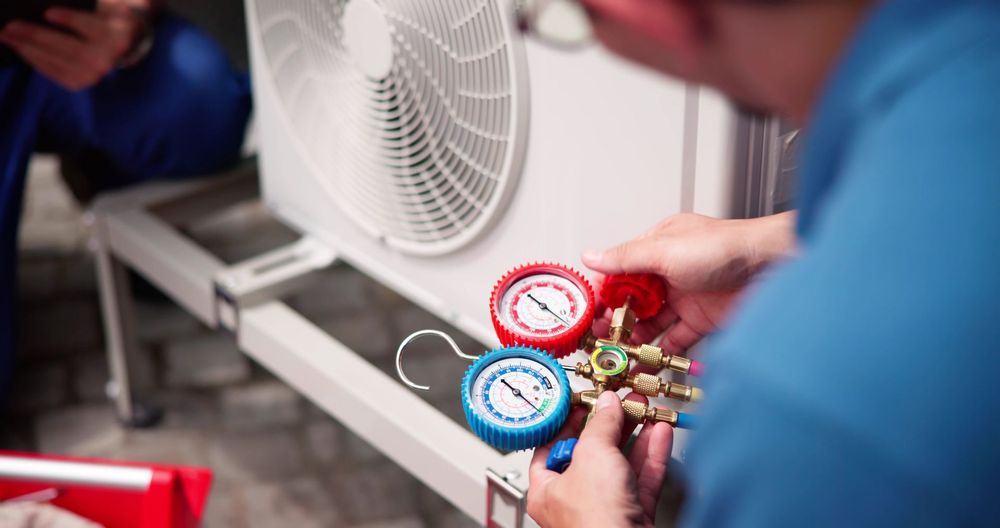
AC Services
When the summer heat hits Contra Costa County, you can count on Tyndall HVAC to keep your cool. Our AC services cover everything from installation and maintenance to repairs and replacements. We work with all major brands and models, ensuring that your air conditioning system operates at peak efficiency.
Heating Services
Don't let the winter chill catch you off guard. Our heating services are designed to keep your home or business warm and cozy. From furnace installations to heat pump repairs, our experienced technicians have the skills and knowledge to handle all your heating needs efficiently and effectively.
HVAC Optimization Solutions
Maximize the performance of your HVAC system with our optimization solutions. We'll assess your current setup and recommend improvements to enhance energy efficiency, reduce utility costs, and improve overall comfort. Our Building Performance Institute certification ensures we take a whole-house approach to optimize your HVAC system.
Emergency Heating and Air Repair
HVAC emergencies don't wait for convenient times. That's why Tyndall HVAC offers round-the-clock emergency repair services. When your system breaks down, our rapid response team is ready to diagnose and fix the issue promptly, restoring your comfort as quickly as possible.
Seasonal Maintenance
Regular maintenance is key to prolonging the life of your HVAC system and preventing costly breakdowns. Our seasonal maintenance plans are designed to keep your system running smoothly year-round. We'll tune up your equipment, clean vital components, and catch potential issues before they become major problems.
Our HVAC Services
Tyndall HVAC Inc has kept homes and businesses comfortable with expert heating, ventilation, and air conditioning services. Our veteran-owned, family-operated team brings over 40 years of combined experience, delivering trusted HVAC solutions. From system installations and repairs to preventive maintenance, we provide complete care you can rely on.
Emergency Heating and Air Repair
HVAC emergencies don't wait for convenient times. That's why Tyndall HVAC offers round-the-clock emergency repair services. When your system breaks down, our rapid response team is ready to diagnose and fix the issue promptly, restoring your comfort as quickly as possible.
Seasonal Maintenance
Regular maintenance is key to prolonging the life of your HVAC system and preventing costly breakdowns. Our seasonal maintenance plans are designed to keep your system running smoothly year-round. We'll tune up your equipment, clean vital components, and catch potential issues before they become major problems.
How much does getting someone out to my house for a service cost?
Our ServicesGuess what? Getting an estimate for your HVAC replacement won't cost you a penny, and if you need us to come by for a service call, it's just $85. Let's make your space comfy again!
How can I troubleshoot common HVAC issues before calling a professional for help?
To troubleshoot common HVAC issues before calling a professional, replace the batteries in the thermostat, replace your air filters if they are dirty, check that the circuit breaker is not tripped, and ensure proper airflow by keeping vents unobstructed. Additionally, inspect the ductwork for leaks, listen for unusual noises, clean the outdoor unit of any debris, and check for any visible signs of water leaks or moisture buildup.
What's the Difference Between a Tune-Up and a Repair Service?
Considering a tune-up? Is your system operating smoothly without any issues, but you want to keep it that way? A Tune-Up is a smart way to stay ahead of potential problems. It’s a simple way to make sure your system keeps running efficiently and doesn’t run into trouble later.
Thinking about a repair service? Are you facing issues with your system's performance, or has it stopped working? Then, a Repair Service is what you need. This service is designed to diagnose and fix any problems, ensuring your system is back to functioning optimally.
How often should I service my HVAC system to ensure optimal efficiency and performance in my home or business?
To ensure your HVAC system runs efficiently and keeps your home comfortable year-round, aim for a professional check-up at least once a year. Scheduling servicing in the spring for your cooling system and heating in the fall optimizes performance and helps catch any potential issues early. Regular maintenance not only prolongs the life of your system but also maintains air quality and keeps energy costs down. Think of it as preventative care for your home's climate comfort!
What Exactly Are Heat Pumps, and How Do They Offer an Energy-Efficient Solution for Both Heating and Cooling Your Home?
Heat pumps keep your home comfortable all year by pulling heat into your home during winter and pushing it out during summer. You might also qualify for rebates or tax credits, making the upfront cost more manageable. As a result, heat pumps are an economically smart choice for maintaining comfort in your home throughout the year.
What size HVAC system do I need for my home?
The size depends on several factors, including the square footage of your home, the climate you live in, how well your home is insulated, and the condition of your windows and doors. A professional HVAC technician can conduct a load calculation to recommend the proper size.
What are the different types of HVAC systems available, and which one is best suited for my home?
When exploring HVAC systems, choose the one that best fits your efficiency needs, space, and climate. Here’s what you need to know:
Central Gas Furnace and AC Split Systems
Description: A traditional system that pairs a gas furnace with a central air conditioner to heat and cool your entire home. It’s one of the most common setups found in residential HVAC.
Efficiency options: Furnaces are available in models ranging from 80% to 98% efficiency. High-efficiency furnaces lose less heat through the exhaust, which can lower energy use. Air conditioners are rated by SEER2 (Seasonal Energy Efficiency Ratio), with higher numbers indicating better cooling efficiency. Upgrading both components can lead to greater energy savings year-round.
Benefits: Provides reliable heating and cooling throughout the home. With high-efficiency models, you can reduce energy use and potentially lower your monthly utility bills.
Considerations: Requires ductwork, making it a good fit for homeowners planning to replace their HVAC system and who don’t want a heat pump.
Heat Pump Systems
Functionality: Heat pumps work by transferring heat between the inside and outside of your home, rather than generating heat directly.
Performance: Standard non-inverter heat pumps may need auxiliary electric heat when outdoor temperatures fall below 35 degrees Fahrenheit, since they lose efficiency in colder weather. Inverter heat pumps can continue heating efficiently in much lower temperatures, often down to zero degrees, without the need for backup heat.
Efficiency benefits: Heat pumps can offer significant energy savings compared to traditional heating and cooling systems because they move heat rather than generate it.
Types: Include aiir-source heat pumps and ductless mini-split heat pumps
Ductless Mini-Split Systems
Configuration: Consist of an outdoor unit and one or more indoor units.
Flexibility: No need for ductwork, allowing installation in various locations, including new additions and retrofits.
Indoor unit options: Includes wall-mounted, floor-standing, and ceiling cassette models.
Advantages: Provide zoned heating and cooling with independent controls for each unit, offering personalized comfort and energy savings.
Inverter Heat Pump Systems
Technology: Uses inverter technology to continuously adjust heating and cooling output based on the home’s needs. These systems can maintain 100% heating capacity even in low outdoor temperatures, like 15 or 0 degrees Fahrenheit. Some models can also operate 15 to 20% above their rated capacity when needed, providing extra output during peak demand. In most regions, these systems provide enough heat on their own, so auxiliary heat usually isn’t needed.
Efficiency and comfort: These systems adjust how much heat or cool air they deliver based on what the home needs, making them more comfortable and energy-efficient.
Best fit:: Works well in a variety of climates and keeps running efficiently even in colder weather.
Dual Fuel Systems
Overview: A dual fuel system combines a heat pump and a gas furnace. It uses the heat pump when the weather is mild and switches to the furnace when it gets really cold.
How it works: On warmer days, the heat pump keeps your home comfortable using less energy. When temperatures drop too low for the heat pump to keep up, the gas furnace takes over to provide stronger heat.
Benefits: A dual fuel system uses the heat pump during mild weather and switches to the gas furnace when it gets colder. While gas can be more expensive, gas furnaces provide faster and warmer heat when needed. This setup offers flexibility and helps maintain comfort when temperatures drop.
Package Units (Gas and Electric, and Heat Pump)
Overview: These are compact, all-in-one units that combine heating and cooling..
Typical applications: These systems are common in commercial buildings but can also work well in homes that don’t have room for indoor equipment.
Energy efficiency: Package units are often less efficient than split systems, though newer models have seen improvements in both performance and reliability
Installation and maintenance: Package units are often chosen for easier installation than split systems, since there’s no brazing involved, and for easier maintenance, as all components are housed in a single unit.
Ductless Mini-Split Systems
Configuration: Ductless systems include an outdoor unit and one or more indoor units.
Flexibility: Without the need for ductwork, these systems are ideal for spaces like home additions, garages, or retrofits.
Indoor unit options: Come in wall-mounted, floor-standing, or ceiling cassette models.
Advantages: Provide zoned heating and cooling with individual controls for each room, improving comfort and helping reduce energy use.
Zoning Systems
How it works: Uses multiple thermostats connected to a zone controller to manage different areas or "zones" in the home independently.
Benefits: Maximizes comfort and efficiency by allowing each zone to be set to a different temperature based on how it's used and personal preference.
Compatibility: Works with most HVAC systems and is especially effective with variable-speed equipment that can adjust heating and cooling more precisely.
What are SEER and EER ratings, and why are they important when choosing HVAC systems or air conditioners for your home or business?
When considering upgrading an AC or heat pump system during hot summer days with average temperatures above 90°F, it's critical to evaluate both EER (Energy Efficiency Ratio) for efficient cooling and HSPF (Heating Seasonal Performance Factor) for effective heating throughout the season. SEER (Seasonal Energy Efficiency Ratio), based on an average outdoor temperature of around 82°F, indicates overall cooling efficiency. In contrast, EER reflects performance at higher temperatures, around 90°F, while HSPF assesses a heat pump’s efficiency in heating mode over the entire heating season. As more individuals transition to solar power and seek alternatives to traditional utilities like PG&E, heat pumps are gaining popularity due to their energy efficiency and environmental benefits. SEER2, EER2, and HSPF2 are updated versions of these ratings that indicate even higher efficiency and improved performance in AC and heat pump systems.
What is the ideal temperature setting for my thermostat to balance comfort and energy efficiency?
The ideal temperature for balancing comfort and energy efficiency is around 78°F in summer and 68°F in winter. A smart thermostat can help adjust temperatures automatically based on your routine, saving energy while keeping you comfortable.
What is MERV, and how does it affect the air quality in my home?
MERV stands for Minimum Efficiency Reporting Value, and it rates how well air filters capture tiny, unwanted particles like pollen, dust, and mold spores. These ratings range from 1 to 16, with higher numbers indicating better filtration for cleaner indoor air. However, not all HVAC systems are designed to handle high-MERV filters. Using a filter with a MERV rating that’s too high for your system can restrict airflow, causing your HVAC to work harder. Over time, this can lead to higher energy use and may shorten the life of your equipment. That’s why choosing the right MERV rating is important. It helps remove harmful particles without sacrificing your system’s efficiency or longevity. Let’s keep your air clean and your system running smoothly by finding the right MERV match for your home.
How can I improve the indoor air quality in my home using my HVAC system?
To improve your indoor air quality, remember to change your air filters regularly, choose filters with a higher MERV rating, consider adding an air purifier or UV lights, and make sure your ductwork is properly sealed and in good condition.
Senior and Veteran Discount
Enjoy Your Discount Today!
Senior and Veteran Discount
Enjoy Your Discount Today!
Tyndall HVAC proudly supports our veterans and seniors with a 5% discount on all services. Experience top-quality heating and air conditioning at a special rate.
Here's what our satisfied customers are saying...
At Tyndall HVAC, Inc, we take pride in providing exceptional HVAC services to our customers. We would be grateful if you could share your thoughts about our company with others. Your feedback helps us improve and helps others make informed decisions. Please take a moment to leave a review of Tyndall HVAC, Inc and let others know what you think.



